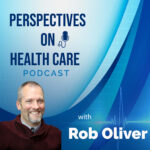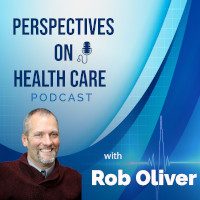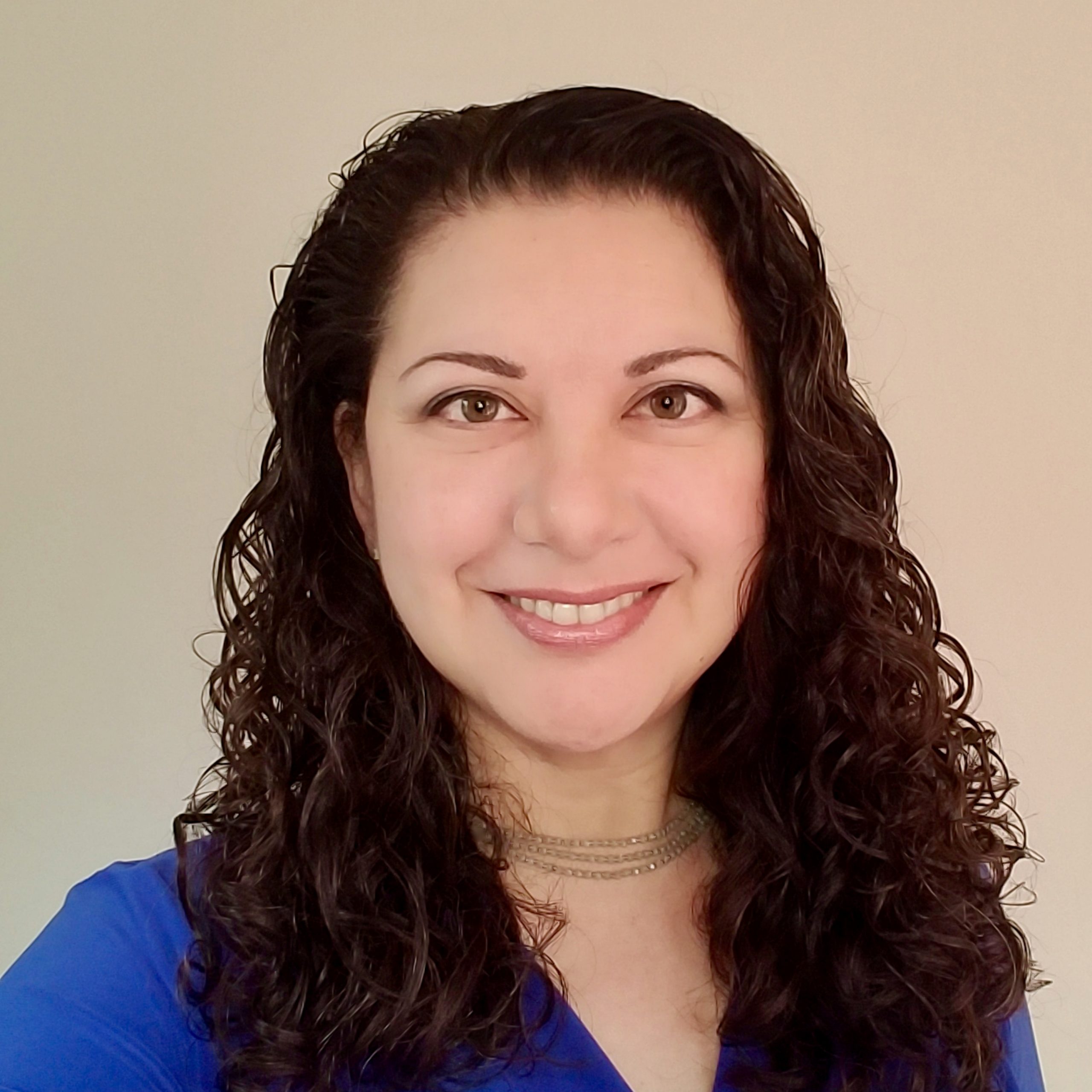
We hear a health technology advisor’s perspective on healthcare from Nicole Coustier on this episode of the Perspectives on Healthcare Podcast with Rob Oliver. A member of Generation X, Nicole joins the show from San Francisco, California. Nicole specializes in finding common ground for the various stakeholders in the healthcare community.
Here are 3 things that stood out as Nicole Coustier shared a health technology advisor’s perspective on healthcare:
· A health technology advisor assists the technical community to understand how the healthcare system works and how their proposed concept might fit
· The right care, for the right patient, at the right time are the key elements to providing quality healthcare
· The stakeholders in the healthcare system are more than just the medical providers and their patients. It includes families, friends, support systems, communities and more!
You can find out more about Nicole Coustier through her website and social media links:
Website: https://nicolecoustier.com
Twitter: http://www.twitter.com/ncoustier
LinkedIn: https://www.linkedin.com/in/nicolecoustier
Here is the text of my interview with Nicole Coustier as she shared a health technology advisor’s perspective on healthcare.
Introduction to Nicole Coustier
Rob Oliver: Thank you. And I appreciate you being with me. To hear another Perspective on Healthcare, my guest today is Nicole Coustier. She is a health technology advisor. She is a member of Generation X. She is from California. Nicole, welcome to the show.
Nicole Coustier: Thanks so much for having me, Rob. It’s great to be here.
Tell me about yourself and your role in healthcare
Rob Oliver: You bet. So let’s start right from the beginning. Tell me a little bit about yourself and your role in health care, because I’m not familiar with what a health technology advisor does.
Nicole Coustier: Sure. Well, yeah, absolutely. So I mostly work with the startup community, the VC investor community, to help validate some of their assumptions about the US healthcare ecosystem and how US healthcare works. And if they want to invest time, money in a new technology, how are they going to develop that technology? How does it fit within the workflows that doctors and hospitals and patients and health plans already have? And how does that technology actually improve patient care? And so I talk with a lot of these folks. I spend my days answering lots and lots of questions and teaching people about how health care works, how that technology might fit in, and what some of the roadblocks might be that that technology is going to experience as it gets developed.
Rob Oliver: Okay. So how did you acquire the expertise that you have in medical technology, if you don’t mind?
Nicole Coustier: Yeah. So I started my first job out of school, was working in infectious disease and environmental health for the state of California. And I did data entry. That’s all I did. But it’s fascinating because doing data entry, you get to see all the things. You get to see all the things that come in. I was dealing with case report forms. I was on the phone with public health nurses in California has a lot of counties, and they are all very, very different. And so it was a beautiful exposure to the differences and the nuances in how health care is delivered to different patients in different communities and what the different needs are depending on the circumstances, the situations, the communities. And here I was doing data entry and trying to figure out how systems and tech could support all of those initiatives and how in a lot of ways, systems in tech were so not helping. And in fact, we’re bottlenecks. And so that very early on got me interested in tech and systems. And then for 16 years after that, I worked with life Sciences companies. They had new technology. We needed to get those products commercialized. And my specialty was designing programs to help the different stakeholders with these new technologies that they didn’t know what to do with what do I do with this thing? So help insurance companies and health plans know what the heck this thing was help patients who are trying to navigate. How do I get this technology that my doctor says I need and my health plan doesn’t cover it? How do I help Susie in the basement of the hospital build this thing? I designed those types of support programs for many years and got to see all the different stakeholders in the healthcare system interact and try to get them on the same page so the patient can get what they needed.
What does quality healthcare mean to you?
Rob Oliver: Interesting. And that leads right into my next question, which is what does quality healthcare mean to you?
Nicole Coustier: Yeah. Well, having worked in this space for a long time, I think that definition is something that I’ve heard a lot of other very smart people say, which is quality healthcare is the right care for the right patient at the right time. If you can get all those three things lined up, it looks like quality. It feels like quality to all the people involved, not just the patient, but their caregivers, their family, all the care staff. If it’s the right care for the right patient at the right time, you got it covered.
Can you give me an example of quality healthcare?
Rob Oliver: Okay. Can you give me an example of quality health care?
Nicole Coustier: Yeah. I used to do a lot of work in the transplant space, and what always had me in awe was the level of coordination required by all these different entities. So you had the community cardiologists for a heart transplant patient. Say you had the heart assist coordinators, you have the transplant coordinators. You had Medicare reps. You had specialty pharmacy, you had front office staff who had to know what was going on. And so all of these different stakeholders all had the same goal. Right. So we want to take care of this patient. What is my role? How do I coordinate with everybody else? And you have this massive machine of people and entities that all had the same end goal. And again, the level of coordination needed to witness that and then to see a patient get the transplant that they needed is a phenomenal thing to witness. It’s a huge, huge victory, not just for the patient and their family, but for the whole system.
Rob Oliver: So who does the coordination in that? Because, as you said, there are so many different moving parts to it. And I really appreciate the fact that you’re mentioning not just the patient, but their family and their caregivers and their friends and then the medical professionals that are involved. How does that coordination happen?
Nicole Coustier: Yeah. So there are people who within that system, there are people whose actual titles are called coordinators. And it is part of their job to be this node in this huge network of people and resources and entities that it all comes down to them, and they are the ones who know what’s going on. Right. They’re the ones that kind of own this whole process. And to be, for example, a transplant coordinator or an LVAD coordinator at a hospital is a phenomenal job. And it is something that these people are heroes. But in addition to those individuals who are coordinating care, we must ask ourselves, are there systems, is there technology that is supporting them in helping them do their jobs more efficiently, more effectively? And that is the question that I’m really interested in and trying to solve for a lot of these doctors and hospitals.
Rob Oliver: Okay. I want to go back. You mentioned that to you. Quality healthcare is the right solution for the right patient at the right time. And when you’re dealing with new technologies, sometimes they are in beta, sometimes they are not approved, sometimes they are approved but not covered by a certain insurance company. How do you handle when you’ve got the right thing to treat the patient at the right time? But there are those obstacles. How do you navigate that minefield to get the patient what they need?
Nicole Coustier: Yeah. So I love this question. There are two ways to tackle this. One is asking the question way upstream of the whole process with a new technology, which is what data do we need to prove that this is the right thing for the right patient at the right time? Right. So very early on, when you’re designing clinical trials and you’re thinking about who are the patients that we’re trying to solve and trying to determine what the appropriate selection criteria is for those patients, that’s when you’re solving the question of the right patients. Right. At the right time. So many of these things can be addressed in these data collected very, very early. And then the better the design of the trial and the more comprehensive the data, the easier it’s going to be for stakeholders way down the line to understand. Okay, I see this data, and it’s Crystal clear to me when to use it, what patient to use it on and how to use it. Right. But Besides that, there is also something that can be done at the individual patient level. So even if you don’t have all the data that shows all the things there’s a question about for this particular patient in this situation, given their medical history. Dear doctor, dear hospital, dear insurance plan, can’t we all agree that this technology serves this patient in this situation? And can we find a way to help ensure that that patient gets the care that they need? Even if you on a population basis, there might be confusion about how this technology needs to be integrated into the healthcare system as a whole. Can’t we agree that it makes sense for that patient? So there are two ways to handle that.
Rob Oliver: Okay. So what I’m hearing you say is that there are the broad spectrum where you’re looking to get it approved for use in the general population. And then there are the specific instances where you say, let’s focus on getting it used for this particular patient at this particular time. Is that properly summarized?
Nicole Coustier: You absolutely got it right. Both channels are open, and both channels often should be used at the same time. Right. As we are collecting data to be smarter about where this new technology sits in the broader scheme, we should also evaluate how do we support individual patients, individual families, and get the ball moving down field and not have the bigger question be a bottleneck to the patient getting the right care that they need.
What do you wish people understood about your role in healthcare?
Rob Oliver: Got it. What do you wish people understood about your role in healthcare?
Nicole Coustier: Having worked a lot of different facets in healthcare over the years, I want people to know that there are no bad guys. There are no bad guys here. I genuinely believe working again with many different stakeholders who have different perspectives, different mandates, different roles. I know that they all are trying to do the right thing. They genuinely believe that they’re trying to do the right thing. Now they’re approaching that question from their perspective and their mandate. Right. But there are no bad guys. And to be able to sit at a table with lots of different stakeholders in the same room, you begin to appreciate that. And it can actually be a very beautiful thing when people are working together like that.
What excites you about the future of healthcare?
Rob Oliver: So what you’re saying is developing an appreciation for the various perspectives of the other members of the medical community. Boy, that sounds like it would be a great podcast. What excites you about the future of health care?
Nicole Coustier: I’m so excited about how Tech is going to improve patient access, improve patient access. There’s a lot out there that is focused on tech improving people’s lives, either in diagnostics or therapeutic spaces. But I’m really excited about AI applications that just help us get smarter about which patients should get what. And can we move treatment upstream a little bit and increase interventions earlier to improve patient outcomes? I’m really fascinated and can’t wait to see even ten years down the line how much technology will be able to improve patient access across the board. That’s really what I’m very excited about.
Rob Oliver: Okay. So let me just make sure I understand when you say about moving treatment upstream, you’re looking to intervene earlier in the process to do treatment measures that are less intense and less severe. That would be more preventative than what would happen further down the road once a diagnosis has progressed further. Is that correct?
Nicole Coustier: Yeah, I think so. Part of it is, can we get smarter about what Therapeutics will help and when they’re going to help? So whether it’s end stage heart failure or some of these other chronic conditions where we’re trying everything we can to salvage quality of life and quantity of life and all of these other things, you know, how can we use Tech to just help us be smarter about managing patients earlier and helping patients and their caregivers make really good decisions about their care so that those outcomes improve. Tech has a role in that and that’s going to be fun to watch.
What can medical professionals do to improve the quality of healthcare their patients receive?
Rob Oliver: Sure. What is one thing medical professionals can start doing today to improve the quality of health care?
Nicole Coustier: Yeah, I love this question. So it does come down to listening and I know that this is a theme in your podcast. I know so many people talk about listening, listening to the patients, listening to their colleagues, but it really is at the core of everything, isn’t it? And this is a theme that we’ve had just throughout this episode, which is having an appreciation for the stakeholder across the table. They are involved in this somehow. And if you know that there are no bad guys and everybody’s really trying to do the right thing, Trying to listen to their perspective and understand what their concerns are and the problems and pain points that they are trying to solve for that is going to be a beautiful way to kind of bridge some of these would appear to be disparate goals when they’re really not at all. And so listening, that’s something that it always comes down to for me.
Rob Oliver: Yeah. It’s interesting to me to hear you talk about stakeholders. That’s a word that doesn’t get used on the podcast very often, but it’s a word that’s used in advocacy, which is I do a lot of advocacy for people with disabilities and realizing that everybody truly does have a stake. Everyone holds a part of this. And I appreciate your viewpoint that there are no bad guys. Everyone is trying to come at this from their viewpoint, from their vantage, and do what is ultimately the right thing. Listen. Nicole Coustier, thank you so much for being here. I appreciate you talking about a role that I’m not familiar with as a health technology advisor and I truly appreciate your perspective on healthcare.
To connect with the show on social media use the links below:
Twitter: http://twitter.com/yourkeynoter
Facebook: http://facebook.com/yourkeynoter
Instagram: http://instagram.com/yourkeynoter
LinkedIn: http://linkedin.com/company/yourkeynoter
YouTube: https://www.youtube.com/channel/UC9ub8CjRQAmXsOEA4s9AYbw
We would love to hear from you. Visit the “Contact Us” form:
https://www.perspectivesonhealthcare.com/contact/
Look around the website for more Perspectives on Healthcare.
Disclaimer: All opinions expressed by guests on the Perspectives on Healthcare Podcast are solely the opinion of the guest. They are not to be misconstrued as medical diagnoses or medical advice. Please consult with a licensed medical professional before attempting any of the treatments suggested.


